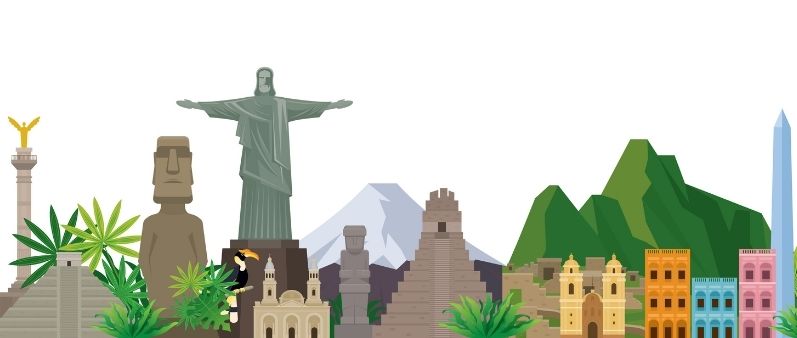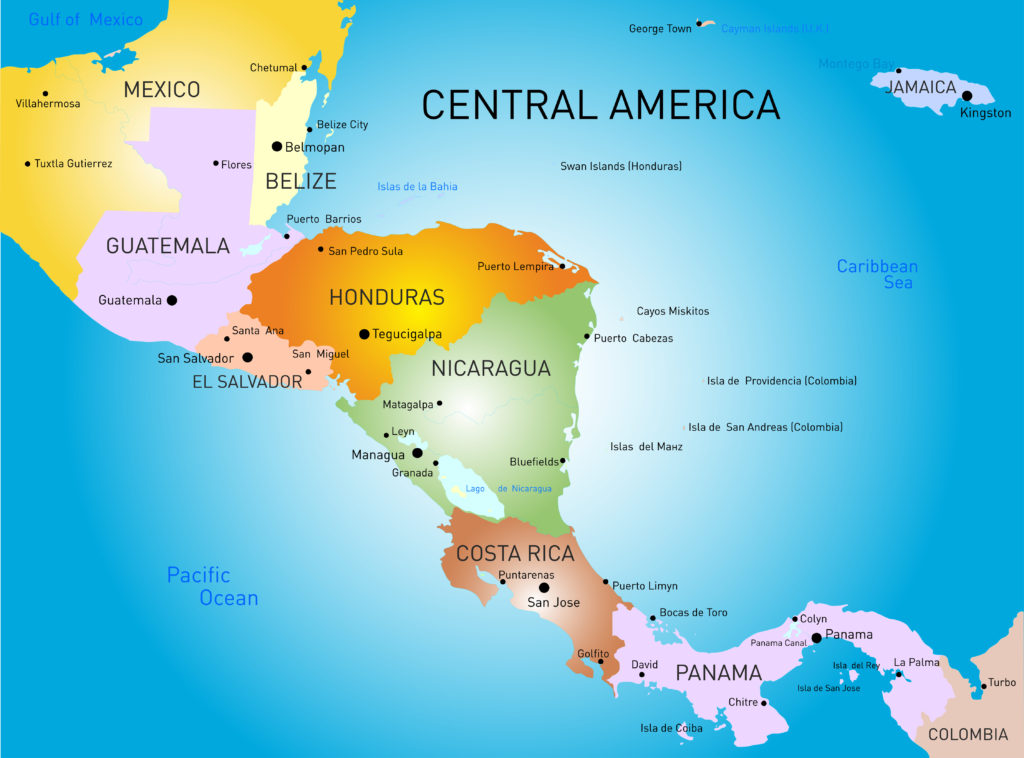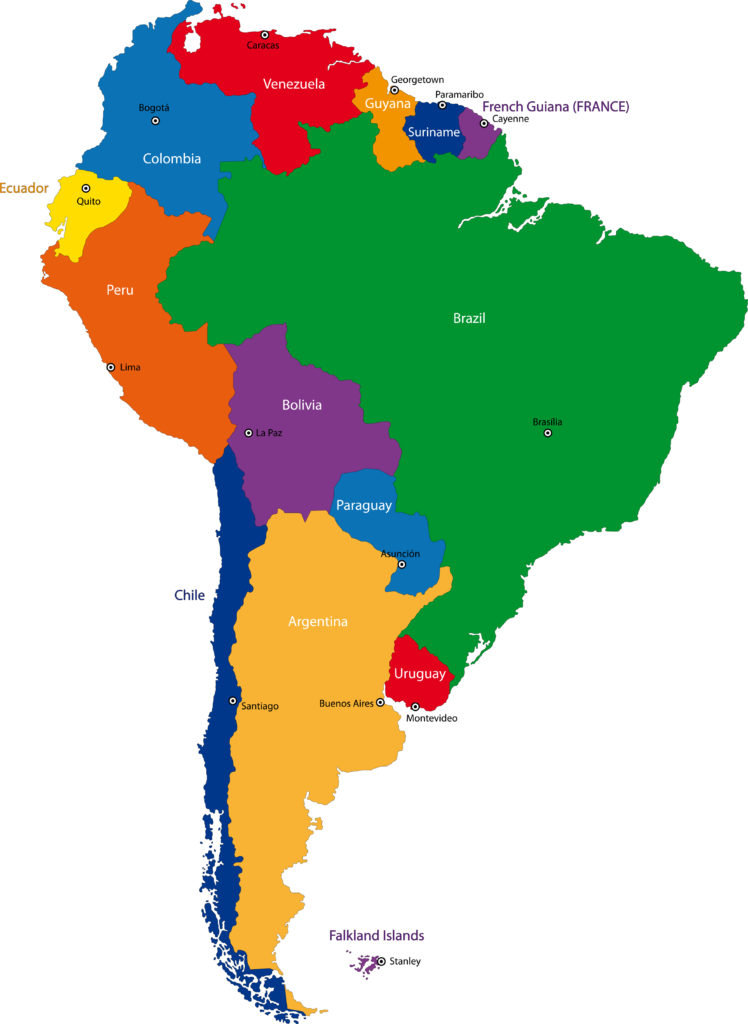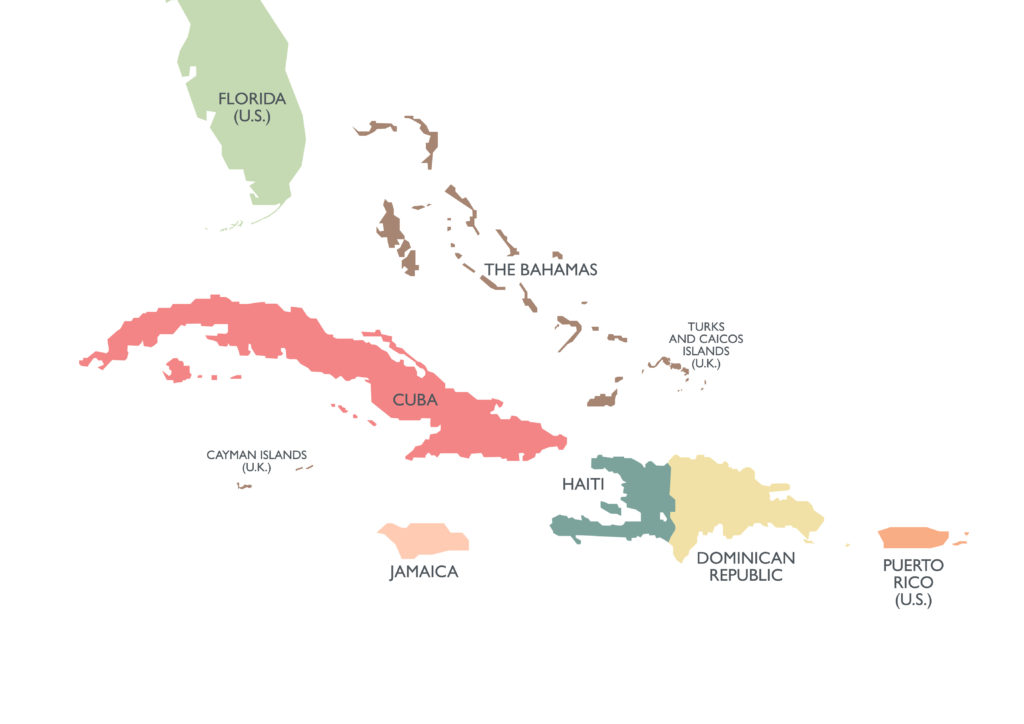
Why Brazil is Called Brazil: Fascinating Origins of Latin American Country Names
Have you ever wondered why Brazil is called Brazil? Or what the name Peru actually means?
If you love discovering the origins of names and learning about the rich historical roots of Latin American countries, then you are in luck! We have provided you with a captivating list of the literal meanings of the names of Latin American countries.
Let’s begin!
Behind the Names of Mexico and Central American Countries

Here are the direct translations of the names of Mexico and the Central American countries!
- Belize – Muddy Watered Land
- Costa Rica – Rich Coast
- El Salvador – Land of the Savior
- Guatemala – Land of Many Trees
- Honduras – Deep Water
- Mexico – In the Navel of the Moon
- Nicaragua – Land by the Water
- Panama – Place of Abundant Fish
Country names can tell you so much about a country itself! Take a short history lesson through the literal meanings of some Central and North American countries below.
Costa Rica, The Rich Coast
Language of Origin: Spanish
Costa Rica was once one of the many countries conquered and ruled by Spain during the 16th century. Due to the amount of bountiful natural resources found in the country, Costa Rica’s rich biodiversity inspired the country’s name and quite literally translates from Spanish to mean “Rich Coast.”
Guatemala, The Land of Many Trees
Language of Origin: Maya-Toltec, Nahuatl, or another indigenous dialect
With more than 20 indigenous languages rooted in its culture, Guatemala’s name is believed to come from one of the native civilizations that situated itself in the land hundreds of years ago. Since there is such a large Mayan presence in Guatemala, with half of the country’s current population coming from Mayan communities, it is believed the name originated from a traditional Mayan phrase meaning “land of many trees.”
Mexico, In the Navel of the Moon
Language of Origin: Nahuatl
Nahuatl is the native language of the Aztecs, one of the many indigenous peoples that lived in Mexico during Spain’s conquest of the Americas around the 15th and 16th centuries. The name particularly originates from Mexico City, or the Valley of Mexico, where the great Aztec city of Tenochtitlan was once situated.
Literal Meanings of the Names of South American Countries

If you have visited these South American countries, do you recognize why these would be their translations?
- Argentina – Land Beside the Silvery River
- Bolivia – Bolivar’s Land
- Brazil – Red Dyewood, Brazilwood
- Chile – Where the Land Ends
- Colombia – Land of Columbus
- Ecuador – The Equator
- Guyana – Land of Many Waters
- Paraguay – People Born along the RIver
- Peru – Land of the River
- Suriname – Land of Surinans
- Uruguay – River of Shellfish
- Venezuela – Little Venice
What do these names tell us about these South American Countries? Dig deeper into these countries by understanding some of their origin stories.
Brazil, The Land of Red Dyewood
Language of Origin: Portuguese
Brazil was believed to be named after a deep-red colored tree called a Brazilwood. The tree was named pau-brasil by Portuguese explorers, pau meaning stick and brazil spawning from the word brasa, meaning ember.
Chile, Where the Land Ends
Language of Origin: Mapuche, or another indigenous dialect
Along with the popular mispronunciation of the country’s name, Chile is believed to actually originate from the Mapuche word chili, spelled just like the beloved dish. However, the name does not refer to stewed beans at all, but rather translates to “where the land ends” or “the deepest point of Earth.”
Paraguay, Home of People Born Along the River
Language of Origin: An indigenous dialect
Like many other Latin American countries, the origin of the name is believed to come from an indigenous language spoken by the native inhabitants of the region. In Paraguay, the Guaraní people relied heavily on natural resources to survive. The most influential product of nature was the Paraguay River, which is where the country’s name is believed to come from.
Suriname, the Land of the Surinen
Language of Origin: Dutch, mixed with the indigenous name for the Surinen people
Who were the Surinen?
The Surinen were a group of indigenous people that inhabited the region before Europeans colonized the area. Ironically, the country actually possessed an array of different names as it passed through the hands of the Spanish, English, and Dutch. The Dutch finally landed on the name Suriname in recognition of the Surinen people.
Actual Meanings of Caribbean Country Names

Unsurprisingly, many Caribbean countries get their literal meanings from the gorgeous sea and lush tropics all around them.
- The Bahamas – Land of Shallow Sea
- Cuba – Centre Place
- Dominican Republic – Saint Dominic’s Island
- Haiti – Land of Mountains
- Jamaica – Land of Wood and Water
Let’s take a deeper look at some of the origin stories of these countries through their names.
The Bahamas, The Land of the Shallow Sea
Language of Origin: Spanish
In Spanish, the word bajamar means “shallow water” or “low tide.” The Bahamas, a former British colony and the believed landing place of Christopher Columbus, consists of a conglomeration of small Caribbean islands and is known for its shallow, tropical waters.
Haiti, The Land of Mountains
Language of Origin: An indigenous dialect
Before the 19th century, Haiti was actually named Saint-Domingue by the French. But once it received its independence in 1804, the country was fitted with the more culturally acceptable name of Haiti, meaning “land of mountains.”
Get the Literal Translation Right!
One big similarity between the names of Latin American countries is their common roots in the native languages from indigenous communities that once lived there. Ironically, this is also the biggest difference between them all.
Each country has a unique cultural heritage and is spectacularly diverse in its own way. Although they are all connected by one common language today – Spanish – their names are rooted deep in history and tradition.
About 360 million people speak Spanish. Open the door to the other half of the Americas.
CLICK HERE to add over 400 million native Spanish speakers to your address book.
¡TODOS UNIDOS!
No Comments for "The Literal Translation of Latin American Country Names"